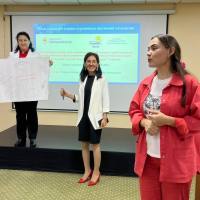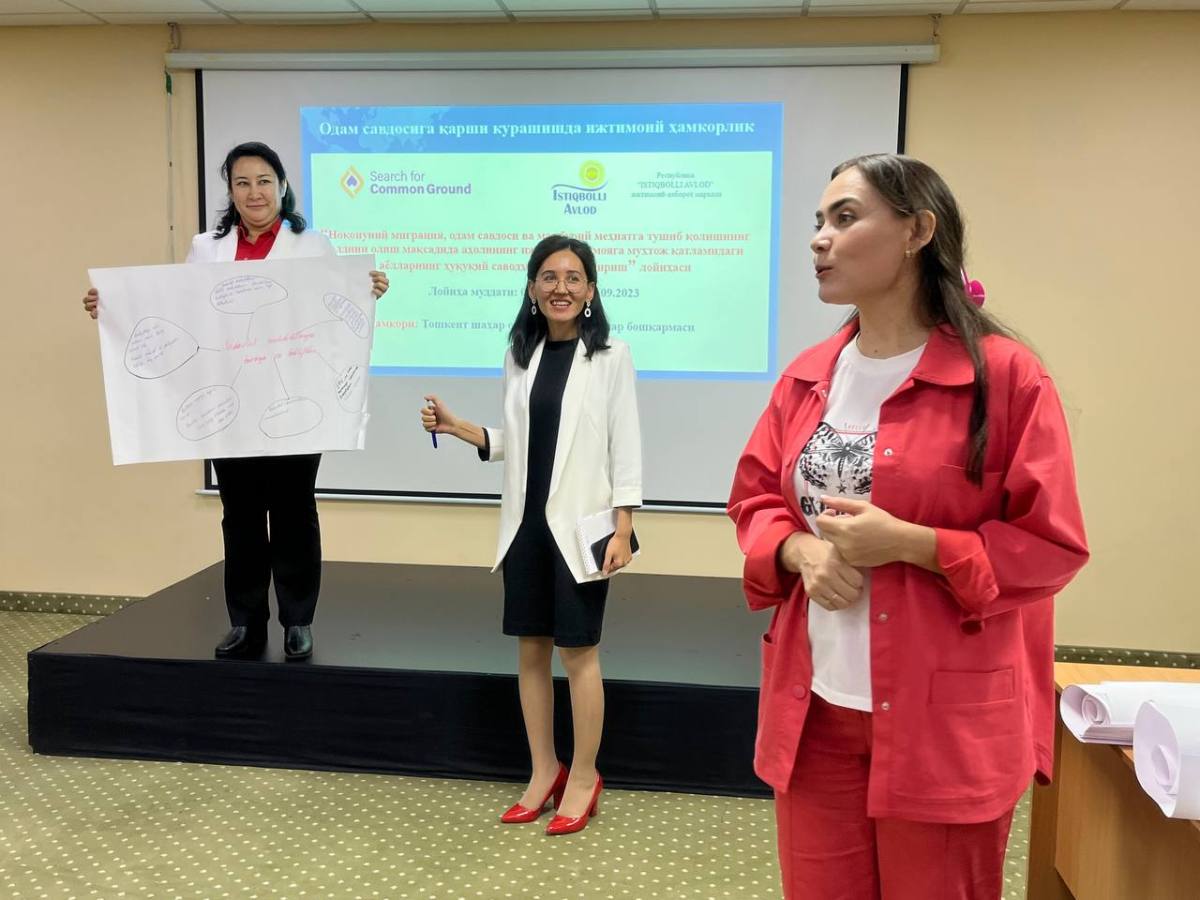In a Tashkent hotel conference room, a dozen women have gathered. Leaders of their own nongovernmental organizations (NGOs) are here to design new projects to empower women in their communities, but they can’t quite believe we are giving all of them funding. That’s one of the unique attributes of this project. Rather than pitting women against one another to compete for resources, we eliminate competition by assuring participants from the get-go they will receive financing and support for their peace and security initiatives.
We know that investing in women-led peacebuilding organizations makes good business sense. When women participate in peacebuilding processes, the peace agreements they help broker have a 20% greater chance of lasting at least two years, and the probability these agreements last 15 years increases by 35%. Yet today, most peace processes largely exclude women. That’s why we’re inviting women to be full partners in peacebuilding and security initiatives with a global, five-year program: Supporting Her Empowerment: Women’s Inclusion for New Security (SHE WINS).
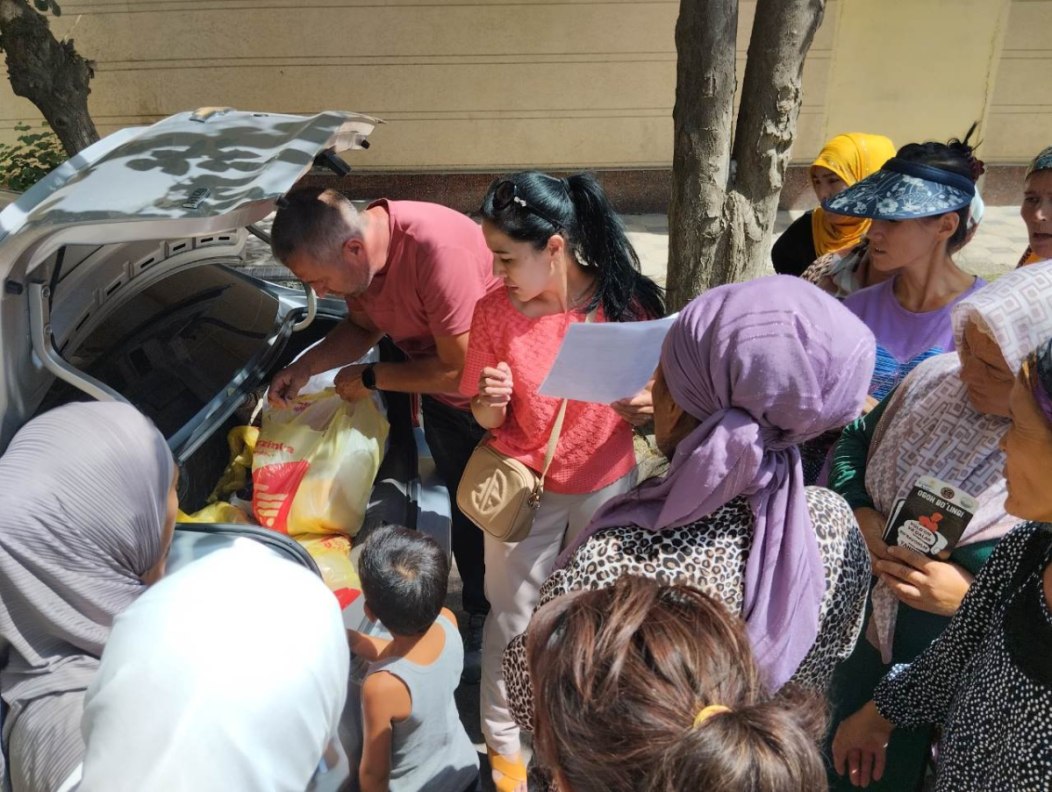
Some of the NGOs SHEWINS supports offer psychosocial support services to gender-based violence survivors and trafficking victims. Others have developed standard operating procedures for disaster relief delivery and guidelines on gender sensitivity while delivering humanitarian aid. Another NGO empowers female day laborers working in the informal economy who face exploitation and harassment. This NGO provides skills training so day laborers can receive formal employment contracts or transition from physically demanding jobs such as cleaning streets to alternative employment that is less physically demanding and supports their caretaker responsibilities. Another organization offers food packs and school supplies to struggling mothers, and it advises on how to access free public transportation or apply for legal assistance. Some NGOs work on border conflicts because outcomes are more equitable and sustainable when female voices are included in mediation. Other NGOs champion the differently-abled while still others train journalists on how to report on gender-based and domestic violence in a non-stigmatizing way.
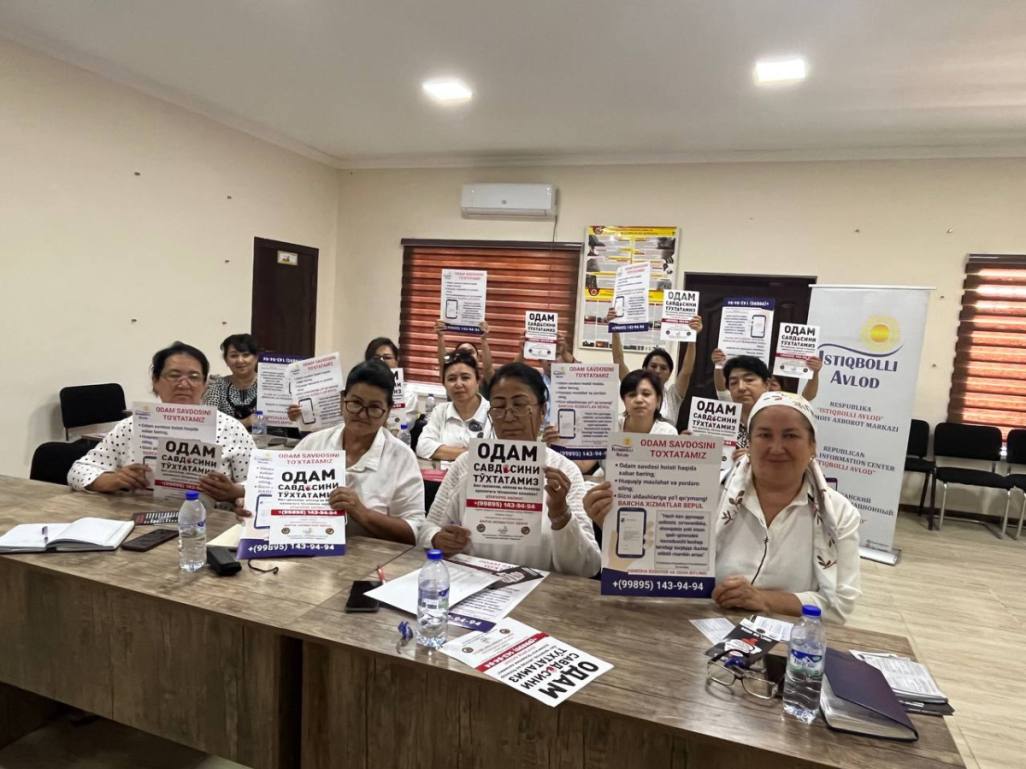
Empowering women to build peace benefits all of us. Peace and stability positively correlate to gender equality. Countries with higher gender equality are less likely to respond with violence in a conflict setting. True gender equality raises gross domestic product exponentially, so families eat better and are healthier. Kids stay in school longer. Having a better education and overall health, the next generation gets better jobs, pulling entire households out of poverty.
In Uzbekistan, one of the six countries where we’re running SHE WINS, women’s lives are hard. Gender-based violence is prevalent, and perpetrators of domestic violence are seldom held to account. Women marry young, having been picked by their future mother-in-law based on pragmatic rather than romantic considerations. Wives join their in-laws’ household, where they have the lowest status in the family.
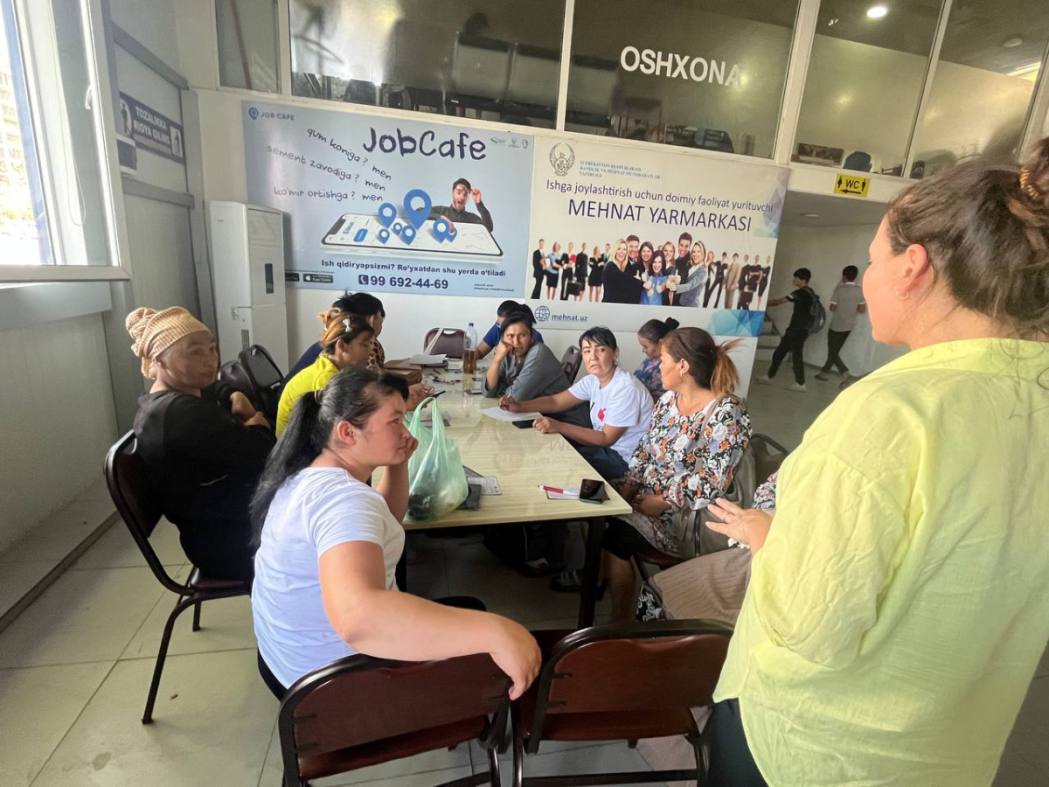
Often, husbands leave their wives to look for work in the bigger Uzbek cities or abroad. When a husband sends money home, he sends it to his parents, who may or may not share the money with their son’s wife. Because divorce is stigmatized, and women do not often have reliable means to support themselves, wives are stuck in unhappy marriages. Uzbekistan’s nongovernmental organization (NGO) sector is underdeveloped, so more support for women is needed.
SHE WINS is building the capacity of women-led NGOs to bring their voices to the national policy space so everyone thrives. In the areas of Uzbekistan where we work, we scanned the female-led NGOs, analyzing what people need, which groups address those needs and where, and what needs are not being met. In response, we selected 28 organizations from four regions. We invited female participants to a month of training to develop their skills and gave them funding to implement their initiatives. A significant component of training includes the co-design process.
People know what they need. During the co-design process, we ask participants what their niche is or what they are excited to accomplish. We probe into “the why” of motivation because many of these leaders could spend their time elsewhere. We ask participants to define success indicators and to identify the activities needed to deliver success. We encourage collaboration amongst NGOs. Then, we support participants as they design a project and create a budget.
To complement the co-design process, we offer participants training sessions based on their needs. Popular training session themes include conflict transformation using the Common Ground Approach, mediation, business development, financial management, financial literacy, grant writing, proposal writing, monitoring, evaluation, learning (MEL), and advocacy. Specialty topics include how to counsel about gender-based violence, how to speak to a private or institutional donor, and how to look for long-term solutions. Because the work all these female-led organizations do is hard, we offer all SHEWINS participants psychosocial support to avoid burnout.
SHE WINS, like the women it supports, is audacious, bold, visionary, and empathetic–the exact qualities we need right now as our world suffers unprecedented violent conflict, economic instability, and mass displacement. Thanks to supporters like you, we are putting people first by empowering women on the frontlines of peacebuilding. But we can’t do it alone. The world’s needs are bigger than any of us. Solving our current crises will take all of us–all of our collective talents, knowledge, and generosity. Won’t you join us as we mobilize an unprecedented force for building lasting peace?
This Giving Tuesday, Put People First

